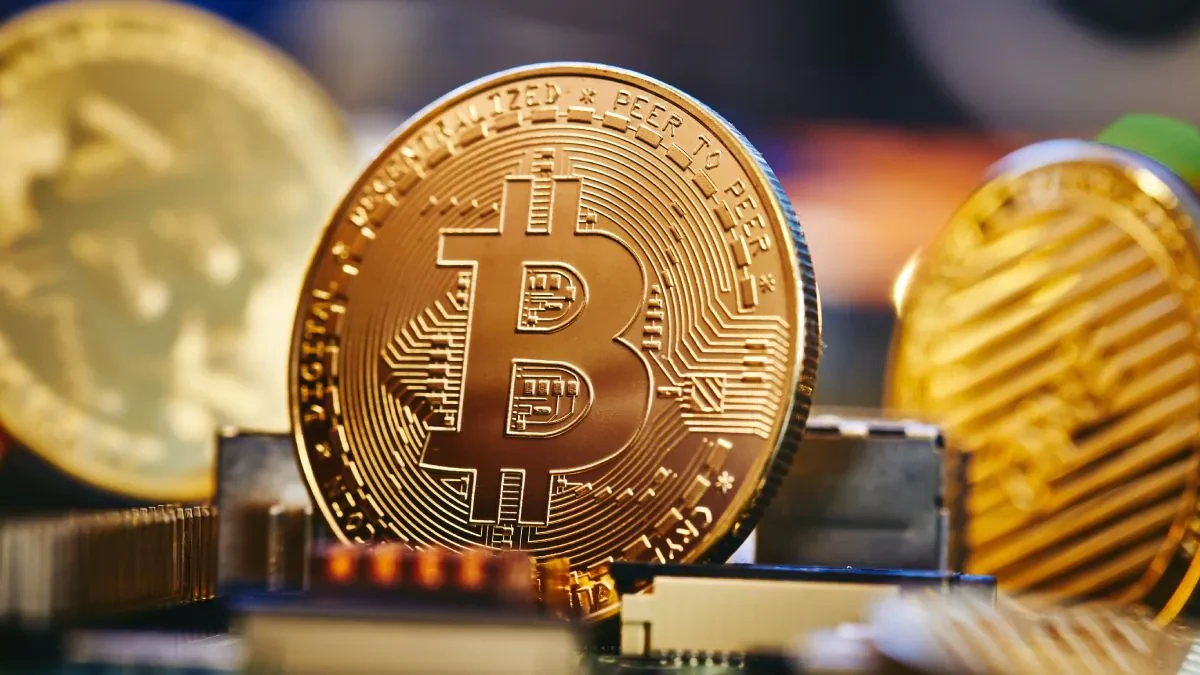
LONDON: Some of the world’s biggest cryptocurrency exchanges are staying put in Russia, breaking ranks with mainstream finance in a decision that experts say weakens Western attempts to isolate Moscow following the invasion of Ukraine.
Western sanctions, which aim to squeeze Russia’s economy and sever it from the global financial system, have forced companies and financial firms in their droves to halt business in the country.
But many of the world’s largest crypto exchanges – including Binance and US-based Kraken and Coinbase – have stopped short of a blanket ban on Russian clients, despite a plea from the Ukrainian government for one. They said they would screen users and block anyone targeted by sanctions.
The standoff illustrates the ideological gulf between the traditional financial sector and the world of cryptocurrencies, whose roots lie in libertarian ideals and distrust of governments.
The crypto exchanges argued that cutting off a whole nation would run counter to bitcoin’s ethos of offering access to payments free of government oversight.
Yet some anti-money laundering specialists warned the exchanges could be keeping a route open for Russians to move money abroad, thus undermining Western efforts to pressure Russia to back away from war.
“There’s no question sanctions are diminished,” said Ross Delston, a US lawyer and former banking regulator, adding that cryptocurrencies “allow an avenue for a flight to safety that would not have existed otherwise”.
While most exchanges do require ID checks, the rigour of “know-you-customer” rules differs across the industry, worrying regulators who see crypto as a vehicle for illicit cash.
Anti-money laundering and crypto experts said people targeted by sanctions may try to move funds via so-called privacy coins – a class of cryptocurrencies that obscures the identity of users more than bitcoin. Supporters say they offer users greater protection from intrusive monitoring by governments.
RUSH OUT OF ROUBLES
Russian households and businesses have rushed to convert roubles into foreign currency, as the rouble hit a record low of 110 versus the dollar on Wednesday.
There are signs too that suggesting that people are scrambling to covert savings to crypto – trading volumes between the rouble and cryptocurrencies hit 15.3 billion roubles ($140.7 million) on Monday, a three-fold jump from a week earlier, according to researcher CryptoCompare.
The spike has worried regulators, with the European Commission looking at whether crypto is being used to get around sanctions, an EU official said on Wednesday.
The US Treasury and Britain’s financial watchdog did not respond to requests for comment for this story.
The crypto exchanges’ stance goes against that of several traditional payment companies and fintech firms that have responded to sanctions by restricting services in Russia.
Payments company Wise and remittance processor Remitly have, for instance, suspended money-transfer services in Russia, while Apple Inc limited use of Apple Pay.
US payment card giants Visa Inc and Mastercard Inc also blocked multiple Russian financial firms from their networks.
‘LIBERTARIAN VALUES’
Ukraine’s Vice Prime Minister Mykhailo Fedorov on Sunday asked crypto exchanges to block the digital wallet addresses of Russian users, a move that would effectively stamp out their ability to trade crypto.






